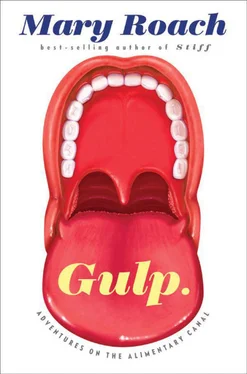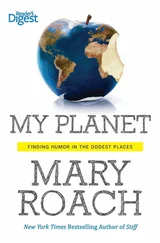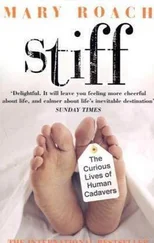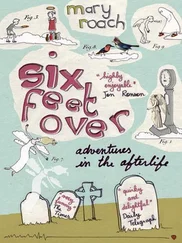More than anything else, the story of Beaumont and St. Martin is one of obsession. Here was a man who devoted his adult life and more than a thousand dollars of his own money to the study of gastric fluids. Here was a man willing, in the name of science, to taste chymified chicken from another man’s stomach (“bland and sweet”). A man who became, as his biographer Jesse Myer put it, “so deeply engrossed in his subject that it was difficult for him to understand why everyone could not feel the same interest.” Beaumont was crushed by the lackluster sales of his book, Experiments and Observations on the Gastric Juice, and the Physiology of Digestion , in the United States and the bald disinterest from British publishers. (“I have returned Beaumont’s Experiments , as I do not feel inclined to make an offer for it,” read one rejection letter in its chilly entirety.) Among the William Beaumont Papers at Becker Medical Library are letters from the doctor to the secretary of the navy and the secretary of war, urging them to purchase a hundred copies of his book. (The navy man, a bit of a softie, bought twelve.) Beaumont had friends in high places, and he sent every single one a signed copy. Picture Martin Van Buren, then the vice president of the United States, leaning back in his magnificent leather-upholstered desk chair and opening Beaumont’s book at random and reading, “At 9 o’clock A.M., I put a solid piece of rib bone, of an old hog, into a vial… of pure gastric juice, taken from the stomach this morning.” Ambassadors, chief justices, senators, and representatives, all were forced to take time away from their weighty lives to pen thank-you notes for a book on stomach secretions. (“Truly a work of most surpassing interest.” “I regret I have not yet been able to look into it with any attention.”)
Obsession is a pair of blinders, and Beaumont wore his tightly. He far overstated the role of gastric acid, ignoring the digestive contributions of pepsin and of pancreatic enzymes introduced in the small intestine. As is regularly evidenced by tens of thousands of gastric reflux sufferers—their acid production pharmaceutically curtailed—humans can get by with very little gastric acid. The acid’s main duty, in fact, is to kill bacteria—a fact that never occurred to Beaumont. What, for all his decades of experimenting, did he teach us? That digestion is chemical, not mechanical—but European experimenters, using animals, had shown this to be true two centuries earlier. That protein is easier to digest than vegetable matter. That gastric juices don’t require the “vital forces” of the body. Not, in short, all that much.
I have on my own bookshelf a 241-page book about saliva. It is a gift from the author, Erika Silletti, and Silletti has signed it for me. She is surely as proud of her book as William Beaumont was of his, and she too endures the peculiar burden of the committed digestive scientist: the snipes and quizzical silences of people who can’t understand why anyone would want to do such a thing for a living; the disappointment of parents who had looked forward to bragging about their child’s career in surgery or neuroscience; the second dates that never materialize.
Dr. Silletti was delighted to hear that I wanted to visit the saliva lab. People rarely ask to visit Erika Silletti’s lab. I am honestly curious about saliva, but I am also curious about obsession and its role in scientific inquiry. I think it’s fair to say that some degree of obsession is a requisite for good science, and certainly for scientific breakthrough. Had I been able to spend time with William Beaumont in his lab, I imagine that my initial negative impressions of him and his work—the unorthodoxy of his methods, the seeming insensitivity to St. Martin—would have fallen away, and in their place I would have felt a measure of respect for the inventiveness and dedication at the core of what he did. I would have pitied St. Martin, not because Beaumont treated him badly, but because life had—because the circumstances of his birth afforded no opportunity to be William Beaumont.
Of course, there’s a good chance St. Martin was happier in his simple shack with his family, “perfectly necket,” than Beaumont was toiling in his labs, misunderstood by his colleagues. To each his own. Beaumont was a man for whom career came first. Like any experimenter, he was meticulous and exacting. People are messy, unpredictable things. Science you can control. Which is why St. Martin was such a bugbear for Beaumont.
Here is what William Beaumont had to say about saliva: “Its legitimate and only use, in my opinion, is to lubricate the food to facilitate the passage of the bolus through the [esophagus].” Beaumont was right about some things, but he was dead wrong about spit.
6. Spit Gets a Polish
SOMEONE OUGHT TO BOTTLE THE STUFF


ERIKA SILLETTI STUDIES saliva in a sunny top-floor lab in the Dutch town of Wageningen. A Gaudi poster hangs on one wall, and the windows look recently washed. The day I arrive, she wears a tailored wool skirt, short but not overly so, black leather boots, and a dove-gray cashmere sweater. If you saw a picture of Silletti in a magazine, you might make yourself feel better by assuming that the creamy skin tone and flawless symmetry of her features had been photoshopped. Only one thing fits my imagined notion of what saliva science looks like: a two-foot-tall, free-standing steel paper-towel holder with the fattest roll of paper towels I’ve ever seen.
I came upon Erika Silletti while roaming the abstracts of a dental conference. She later told me the presentation she gave there was met with blank looks. “They think of it as lubricating, and that’s it!” She went back to her hotel room and called her boyfriend in tears.
It is safe to say that no one in this world understands and appreciates saliva like Erika Silletti. [38] Except possibly Irwin Mandel. Mandel was the author of a hundred papers on saliva. A winner of the Salivary Research Award. The subject of a lush tribute in the Journal of Dental Research in 1997. The editor of the Journal of Dental Research in 1997. Mandel did not go so far as to write the tribute himself. That was done by B. J. Baum, P. C. Fox, and L. A. Tabak. Having three authors means no one man can be blamed for the sentence “Saliva was his vehicle and he went with the flow.”
HUMANS SECRETE TWO kinds of saliva, stimulated and unstimulated, no more alike than most siblings. The prettier child is stimulated saliva. It comes from the parotid glands, between cheek and ear. When a plate of Erika Silletti’s spaghetti carbonara makes your mouth water, that’s stimulated saliva. It makes up 70 to 90 percent of the two to three pints of saliva each of us generates daily.
We’re going to gather some now. Silletti pulls on a pair of blue latex gloves that so pleasingly complement the gray of her sweater that they look like part of the ensemble. She picks up two stoppered plastic vials. Inside each is a second, smaller vial, which contains a tightly compressed, cylindrical cotton wad. This is the Salivette saliva collection system. Silletti uncaps a Sharpie and marks an M , for Mary , on one, and an E on the other.
The Salivette instructions are printed in six languages. Erika Silletti, born in Italy, fluent in English, living in the Netherlands, can read three . “ Kauw dan 1 minuut lichtjes op de wattenrol.” “Masticate delicatamente il tampone per un minuto .” “Gently chew the tampon for one minute.” This is the simplest way to collect stimulated saliva without also collecting the food that stimulated it: you chew the collection device. This is “mechanical stimulation” (as opposed to gustatory or olfactory stimulation, which we’ll come to). Il tampone will wick our flow, and then Silletti will place each back in its vial and put them in a centrifuge. The liquid will be spun from the cotton and flow down through an opening at the bottom of the inner vial, ending up in the outer vial.
Читать дальше














